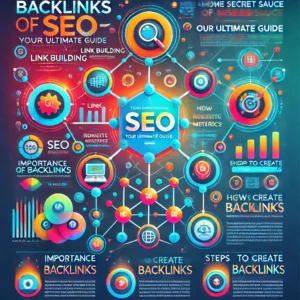Digital marketing is an ever-changing field, and everyone knows this. SEO (Search Engine Optimization) and social media marketing are two of the most powerful tools that can help do this. Each one of them works well on its own, but when you combine all three, the results can be powerful and help your brand compete with the best.
Through this blog, we will highlight how social media and SEO are related, how they work together to enhance your digital visibility, as well as actionable tips that can help with your business growth.
Navigating the Connection Between Social Media and SEO
While many people consider SEO and social media as completely different digital marketing tactics, they are much more interrelated than you would guess. Social signals, whether likes or shares (or even comments), are indirectly supported by Google so they do not directly impact search engine rankings. Here’s how:
1. Boosting website traffic and brand visibility
Social media gives you a place to access lots of people and allows potential customers to find out about your brand. Consistently providing value to your audience on social platforms (LinkedIn, Facebook, Instagram, and Twitter) can increase the traffic that you drive back to your website. More visitors = relevant content in Google’s eyes = Great for your SEO!
Additionally, posting content around target users and embedding robust calls to action can encourage them to visit your site, increasing your referral traffic—the bread and butter of an effective SEO strategy.
2. Improving Backlink Opportunities
Backlinks are one of the core aspects of a good SEO strategy. These backlinks, also called inbound links, indicate to search engines that other websites believe your content is valuable enough to link to it. This is a terrific way to get your posts shared by bloggers, industry leaders, and journalists who may want to link back to your site. The more often your content is shared, the better chance you will receive authoritative backlinks.
For instance, a blog post on “Upcoming digital marketing trends,” which is well-researched, can be posted on LinkedIn. If it catches on and receives some attention, other experts may link to it in their blog or article, increasing your SEO.
3. Building Authority & Credibility with a Brand
It provides you with the opportunity to showcase your value upfront, which is industry experience, and getting in front of a loyal audience that trusts you. Becoming a resource: You can establish great authority by providing valuable insights and responding to user comments and engagement on your posts. Enter the E-E-A-T (Experience, Expertise, Authoritativeness, Trustworthiness) guidelines from Google. A brand that is trusted and recognized as an authority on social media will also provide strength to your SEO.
4. Social Profiles on SERPs
Social media profiles are one of your brand’s most important online extensions. These profiles frequently appear on search engine results pages (SERPs) side by side with your website when users search for your business. This helps improve overall exposure for your brand and provides potential customers with more ways to find out about what you offer.
Tip: Use consistent branding, keywords across your profiles, and links to your website. Having a great social profile is going to increase the visibility of your brand and boost traffic (which you can directly convert into paying customers).
What Role Social Media Plays in Content Discovery and Engagement
Social media is a good content distribution channel that can serve to extend your reach outside of your normal following. Social media can improve content discovery and engagement in the following ways:
1. Amplifying Content Reach
By posting content on social media, you are opening your content to many more eyes, including those who may never have found your piece of work through organic search. Posting your blog posts on social channels, guides, infographics, or videos only increases the chance that someone interacts with it, shares them, and directs traffic back to your site.
Example: Dividing a blog post such as “A Beginner’s Guide to SEO for Small Businesses” into enticing snippets that can be posted on Instagram and LinkedIn, driving the chance of users reading this blog from each platform.
2. Enhancing User Engagement Metrics
Through likes, shares, and comments, social media serves as a sort of feedback mechanism by allowing you to test how well your audience engages with certain posts. More engagement means that your content hits home with your audience, making on-page metrics much more favorable (time on site and pages per session), and the rate of those paginated interactions may affect how well you do in SEO with all those pages working together.
3. Utilizing User-Generated Content (UGC)
Reviews, testimonials, and social media mentions of your brand can all qualify as user-generated content (UGC) that is extremely beneficial to you. It provides social proof, establishes confidence, and even helps boost conversions. Using UGC in your timeline of SEO may help generate greater shareable and real content that improves the authority of your website.
Using social media and SEO together—Key Strategies
1. Fully Optimize Your Social Media Accounts
Just like mini versions of your website, social media profiles also require an SEO touch. Here’s how to do it:
Keywords: Also remember to use focused keywords in your profile bio, descriptions, and even posts.
Uniform Branding: Keep your brand messaging, logos, and imagery consistent on all social media channels.
Include Links: Links You can add a link to your website in your bio, which would bring traffic back to your website.
2. Develop Interesting Material That Can Be Shared
Publish shareable and engaging content For social media, well-shareable formats — videos and infographics, or informative blog posts in the event of LinkedIn — will do just perfectly. Short, punchy headlines, visuals, and even hashtags which help make an impact and also increase the visibility of a post and engagement are some other ideas to try.
3. Leverage Influencer Marketing
Partnering with influencers that align with your brand can expand the reach of your message as well as give you a credibility boost. Influencers have gained the trust of their audience, so they can give your content or product a lift and offer more exposure for indirect backlinks.
4. Learn how social listening can get you to write the content
A treasure trove of user insights — social media. Social listening tools allow you to find out not only what topics and keywords are trending but also determine what questions your target audience is asking. This will help you in creating content that caters to the users’ needs, aligning with what is trending as per data, and can drive more organic traffic.
5. Monitor Social Media and SEO Statistics
Tools such as Google Analytics, SEMrush, and social media analytics enable you to monitor information ( references to traffic sources, actions by users, best performance, etc.)So far what can be tracked are: referral traffic from social channels; behavior of your audience on your site after coming from a social channel; conversions through activations); more. Having an insight into these metrics helps you see how social media is doing its part in bringing SEO success to your site.
How To Make Your Social Media Posts Work For SEO
1. Use Keywords Strategically
Use keywords organically in your posts, captions, and hashtags. This not only aids in SEO but also boosts the chances of your content showing up on social searches.
2. Encourage User Engagement
Ask questions, conduct polls, and hold discussions to connect with your audience. Reach and visibility is determined by the level of engagement you receive from users.
3. Tag People and Use Hashtags
Use Voice Tags Those voices to sound even cooler by tagging people or brands who are relevant to your post, while sticking to a few popular hashtags. It also makes sure your content is shown to the users using specific keywords or hashtags.
4. Post at Optimal Times
It is also important to be posting at the right time as it has an impact on engagement. Utilize the analytics provided on platforms to figure out when your audience is most engaged and schedule posts accordingly.

Social Media and SEO: FAQs
Question 1: What role does social media play in SEO?
When they do not work directly to signal one site or another, social media features help SEO through other means (by increasing brand visibility and traffic to the website itself, as well as generating backlinks).
Question 2: What is the best SEO social media platform?
The ideal platform varies based on your business objectives. B2B marketing can take place on LinkedIn, whereas B2C is ideal for places like Instagram and Facebook. You can optimize your brand SEO and visibility with each platform.
Question 3: What can you do to make your social profiles more SEO friendly?
Utilize relevant keywords in your bio, link back to your website from there, frequently write interesting content, and use trending hashtags to improve your social profiles. A great profile optimization increases discoverability and traffic towards your site.
Question 4: Does Social Media Improve Local SEO?
Yes. Social Media photo by Samsur Rahman Nishan on Pixabay: Social media platforms like Facebook help enhance local search engine optimization (SEO) because they allow businesses to reach out to their local audience, share content specific to a location, and gather reviews that increase visibility in local searches.
Question 5: How often should I be posting on social media for SEO?
Consistency is key. Aim for 3–5 posts a week, although quality will crown frequency. That said, quality content that is useful to your audience will yield better results.
Question 6: Backlink-on-Page Links: Would Social Media Links be Considered as Backlinks?
Generally, social media links = “nofollow”- no link equity transfer. But they have great potential for driving traffic, growing brand recognition, and getting content in front of people who may link to it from their own sites.
Question 7: How does one measure the impact of social media on SEO?
Use Google Analytics to track referral traffic from social media as well as engagement metrics such as time on site, bounce rate, and conversions. Social Media Insights: This can also give you stats on how your content performs across various platforms
Conclusion
SEO and social media are more like two sides of a coin; they have different purposes but when combined create an incredibly powerful digital marketing strategy. While SEO makes sure that your content is found in an organic search by the right people, social media provides great exposure, thus directing traffic and building authority.
Adapting social media with SEO is crucial for survival in the market — today’s shareable content, an optimized profile and a way to reach more users need to be supported by tricks learned from activity around it.
Keep in mind that even though social signals don’t directly affect your SEO rankings, the indirect effects like increased visibility, traffic, and backlinks do their job to enhance your overall digital presence. Therefore, harness the relationship of social media and SEO to achieve a stronger, interactive, and growing online presence.





